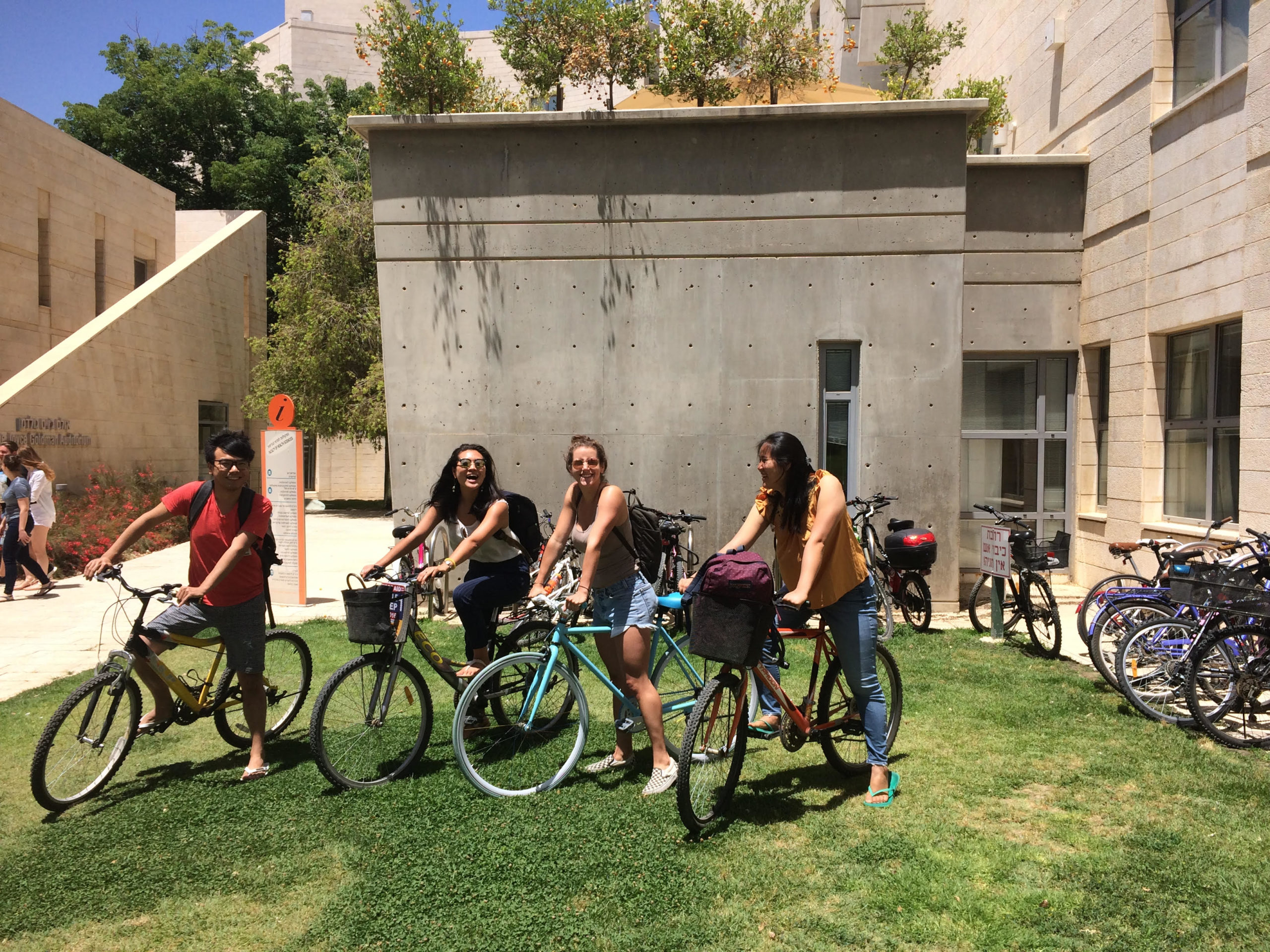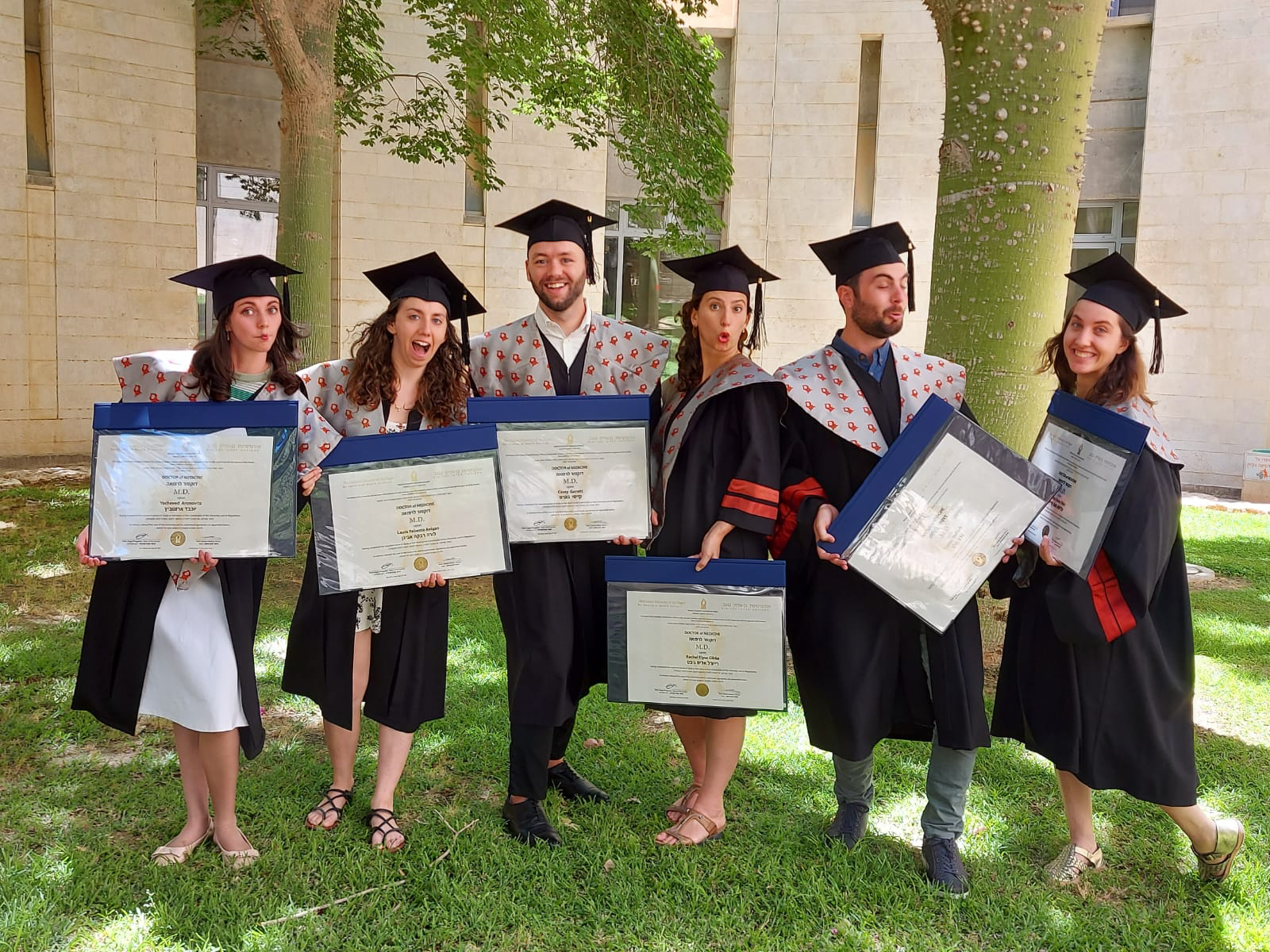What’s daily life like for a student at MSIH? Are there things to do outside of class? Are there interesting places to visit? Transport to get there? Are there cinemas with the latest movies? How about food – are there good places to eat? Concerts? Gyms? Do people play sports? Are they friendly and inviting? Do they speak English? And what about the local Israeli medical students – are they approachable and cooperative?
And where will I live? Will my apartment be tiny and expensive? Will the amenities bills eat up my loans? Who will I live with? Will my apartment be far from school? How will I get there? Are my classmates friendly and helpful, or competitive and distant? If I need help with studies or living, are there people I can count on?
If I’m not Jewish but religious, is there a community for me? And what if I have a medical condition – are there doctors around who can monitor my care?
These are just some of the questions students regularly ask while considering MSIH. Moving to a foreign country – especially in the Middle East – it’s natural to hesitate. This short description – gained from interviewing current students – should answer some of them.
Accommodations
The students interviewed rent a spacious apartment just 10-minutes walk from MSIH. Three of them live together – each with their own room. One of the rooms has its  own en-suite bathroom! It’s a 4-year old apartment with all amenities. Each pays monthly rent of about 1200 NIS ($350) plus another $150 for amenities (water, local rates, communal electricity, etc.). It’s significantly more affordable than renting in a U.S. city and often apartments are fresh and new. A few students choose to commute from Tel Aviv. but this is much more expensive with rates similar to U.S. rentals, and then there’s the added cost of traveling back and forth by train.
own en-suite bathroom! It’s a 4-year old apartment with all amenities. Each pays monthly rent of about 1200 NIS ($350) plus another $150 for amenities (water, local rates, communal electricity, etc.). It’s significantly more affordable than renting in a U.S. city and often apartments are fresh and new. A few students choose to commute from Tel Aviv. but this is much more expensive with rates similar to U.S. rentals, and then there’s the added cost of traveling back and forth by train.
Getting around, where to go, and who you’ll meet
To get around the city, most students have bicycles and scooters – some of them electric. Beersheva is small and everything is within easy cycling distance – even the malls and large cinema complexes on the outskirts. The Old City of Beersheva –  with its renovated Ottoman architecture – buzzes with nightly activity. It is full of bars, fancy restaurants, coffee shops, and atmosphere. BGU students hang out a lot; nobody objects if you study for hours with your laptop on the coffee shop Wi-Fi. Often you’ll meet Israeli medical students down there who you get to know during your Emergency Medicine and Ultrasound courses in first year; they are your TAs. When you reach third year, if some of your clerkships are outside Beersheva, you’ll share your rented bus with them, going for the same reason. You’ll work together in the wards.
with its renovated Ottoman architecture – buzzes with nightly activity. It is full of bars, fancy restaurants, coffee shops, and atmosphere. BGU students hang out a lot; nobody objects if you study for hours with your laptop on the coffee shop Wi-Fi. Often you’ll meet Israeli medical students down there who you get to know during your Emergency Medicine and Ultrasound courses in first year; they are your TAs. When you reach third year, if some of your clerkships are outside Beersheva, you’ll share your rented bus with them, going for the same reason. You’ll work together in the wards.
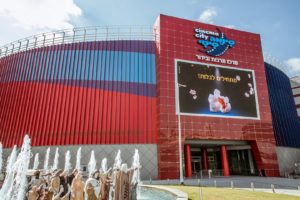 There are plenty of gyms. One interviewed student is now a member of the Israeli Rock Climbing Association. He got there by getting proficient on the practice wall at his local gym. His membership in Beersheva gives him access to the same chain up and down the country. Another student, a long-distance runner, just beat Israel’s national record running from the Mediterranean to the Sea of Galilee. Think about it, that’s a pretty exotic run, about 70 km (45 miles), it passes picturesque Galilean scenery. Some of the route is on Israel’s national hiking trail, so there’s always someone around. Other students play tennis, volleyball, and basketball.
There are plenty of gyms. One interviewed student is now a member of the Israeli Rock Climbing Association. He got there by getting proficient on the practice wall at his local gym. His membership in Beersheva gives him access to the same chain up and down the country. Another student, a long-distance runner, just beat Israel’s national record running from the Mediterranean to the Sea of Galilee. Think about it, that’s a pretty exotic run, about 70 km (45 miles), it passes picturesque Galilean scenery. Some of the route is on Israel’s national hiking trail, so there’s always someone around. Other students play tennis, volleyball, and basketball.
One student enthused that he’d seen the new “Top Gun” movie in Beersheva a matter of hours after its release “back home.”
What is there to see?
Israel is a museum. It’s a museum of cultures, of faiths, of beliefs. It’s a museum of ancient archeology and leading-edge technology. It’s a museum of gastronomy and 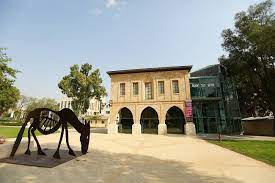 the arts. There’s something for anyone, and it’s never more than a stone’s throw away.
the arts. There’s something for anyone, and it’s never more than a stone’s throw away.
Pick any point on the map and within a few kilometers there’s an archeological site stretching back to the Canaanites or the Ancient Greeks, the Romans or the Ottomans. And it started way, way before the Bible. There are traces of Neanderthals in ancient caves. In the Fertile Crescent humanity first settled, where we took up farming, where “civilization” dawned.
And then there’s Jerusalem – where the three great religions meet – and sometimes clash. You could spend months in Jerusalem and never get bored. You can get there by bus or by train in 90 minutes from Beersheva.
So yes, there are plenty of things to see…
Is there student life in Beersheva?
Although MSIH is a small school, it’s part of Israel’s fastest-growing university. With 20,000 students at BGU – most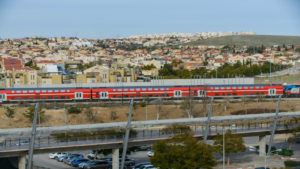 living around the university – there’s always something to do. Yoga, dance, music, cooking, running, or mountain-biking. Even the Mediterranean Sea is just an hour away on a frequent bus. “Everything is easily accessible by public transport,” explains one student. “But because the public services close down for Shabbat, you need to plan your weekend well.”
living around the university – there’s always something to do. Yoga, dance, music, cooking, running, or mountain-biking. Even the Mediterranean Sea is just an hour away on a frequent bus. “Everything is easily accessible by public transport,” explains one student. “But because the public services close down for Shabbat, you need to plan your weekend well.”
If you’re not Jewish, no problem. There’s an active Christian community on campus. Twenty percent of BGU students are Israeli Arabs, so Muslims are welcome too.
What about my medical condition?
With the city being small, and the school intimate, Beersheva’s doctors are well-acquainted with the program. It doesn’t take long to establish a personal connection, and anyone with a medical condition can be assured of great follow-up and treatment.
What really sets MSIH apart?
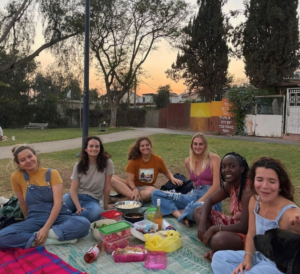
If there’s one single thing that sets MSIH apart, it’s the student body. An interest in Global Health draws them to the school – mostly, people with a strong conscience who want to help others. Put like-minded people in a classroom together in a foreign environment and within minutes they’re helping one another. Within a few weeks, they’re like brothers and sisters, sharing experiences, making meals, studying, and playing together. On the rare occasion that someone is having trouble with Hebrew, a classmate’s there to assist. There’s a “traveling group” – students who take trips abroad together at every opportunity. So far they’ve been to Cyprus, Bulgaria, and Hungary among others.
Nearly 700 graduates of MSIH can attest to the special relationship they had with their classmates – many remain close friends well into their careers, traversing continents to attend weddings, vacation together, or just hang out. They’re all part of our great MSIH Family.


